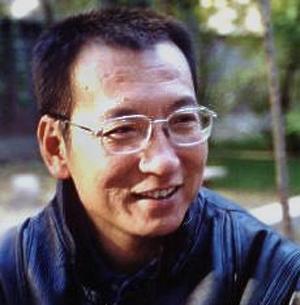55 Convicted in Mass Trial in China's Northwest
/Olivia Elswick, Asia CorrespondentLast Modified: 12:36 p.m. DST, 1 June 2014
XINJIANG UYGHUR - In China’s Xinjiang stadium packed with 7,000 observers, 55 people were convicted of terrorism, murder, and separatism. At least one convict was given a death sentence. One man was jailed for 15 years after preaching holy war to his son and another man. Another was given five years in prison for ethnically discriminatory comments he made in chat groups. Three defendants were convicted of using “extremely cruel methods” to kill four people, including a 3-year-old girl on April 20, 2013.
China used mass trials in the Cultural Revolution and again in the 1980s and 90s to combat the rise in crime due to social upheavals related to China’s economic overhaul, but the practice has since faded from use. The AP says, “Such sentencing rallies — designed to humiliate the accused and feed a public thirst for retribution — were formerly common across China, but have in recent years been mostly restricted to Xinjiang and the neighboring restive region of Tibet.”
These convicts are reported to be Uighurs, members of the region’s biggest Muslim minority group. They are Turkic Central Asian people related to Khazaks and Uzbeks. With different accents and slightly European features, they are recognized as distinctly different from China’s Jan majority. Uighurs face discrimination, restrictions on culture and religion, and economic disenfranchisement, and they are increasingly fighting for independence for their northwestern homeland of Xinjiang, an area that borders Afghanistan. The Chinese government claims the unrest amongst the Uighurs is due to extremist groups with ties to Islamic terrorist groups abroad, though experts dispute this.
In the mainly Muslim area of Xinjiang, last week 43 people were killed and 90 wounded, in a vegetable market in Urumqi after two SUVs rammed through shoppers and set off explosives. The Xinjiang regional government said the early morning attack was “a serious violent terrorist incident of a particularly vile nature”. This is the second attack in Urumqi in 3 weeks, after a bomb killed one and wounded 79 in a train station in April.
On Tuesday police in southwestern Xinjiang arrested five people in relation to a bomb plot. The government has detained more than 200 people this month and 23 extremist groups have been broken up. Additionally, the Yili branch of the Xinjiang High Court, announced that 65 people were arrested and detained for offenses including separatism and covering up crimes and rape. In March 2014, 29 people were stabbed to death at a train station in Yunnana. All of these attacks are blamed on Uighur extremists.
Uighur’s have been increasingly facing harassment by the police after a suicide SUV attack at Tiananmen Square in Beijing. Five have been arrested on suspicion of involvement in this “carefully planned terrorism,” police revealed. Knives, iron rods, and a flag with religious slogans were found in the vehicle used in this attack. Dozens were injured, and three of the car’s occupants and two bystanders were killed. If proved to be carried out by Uighurs, this is the first attack outside the Xinjiang region in recent history.
China has declared a year-long campaign against terrorism.
Follow Olivia on Twitter Twitter: @nahmias_report Asia Correspondent: @OCELswick
Related articles
- China fills stadium with 7,000 people to watch 55 be convicted of murder, separatism and terrorism (news.nationalpost.com)
- In public stadium, Chinese officials pronounce 55 guilty of murder, separatism, terrorism (foxnews.com)
- China pronounces 55 guilty in stadium in northwest (miamiherald.com)
- China carries out mass sentencing in sport stadium (irishtimes.com)
- China Pronounces 55 Guilty in Stadium in Northwest (abcnews.go.com)















